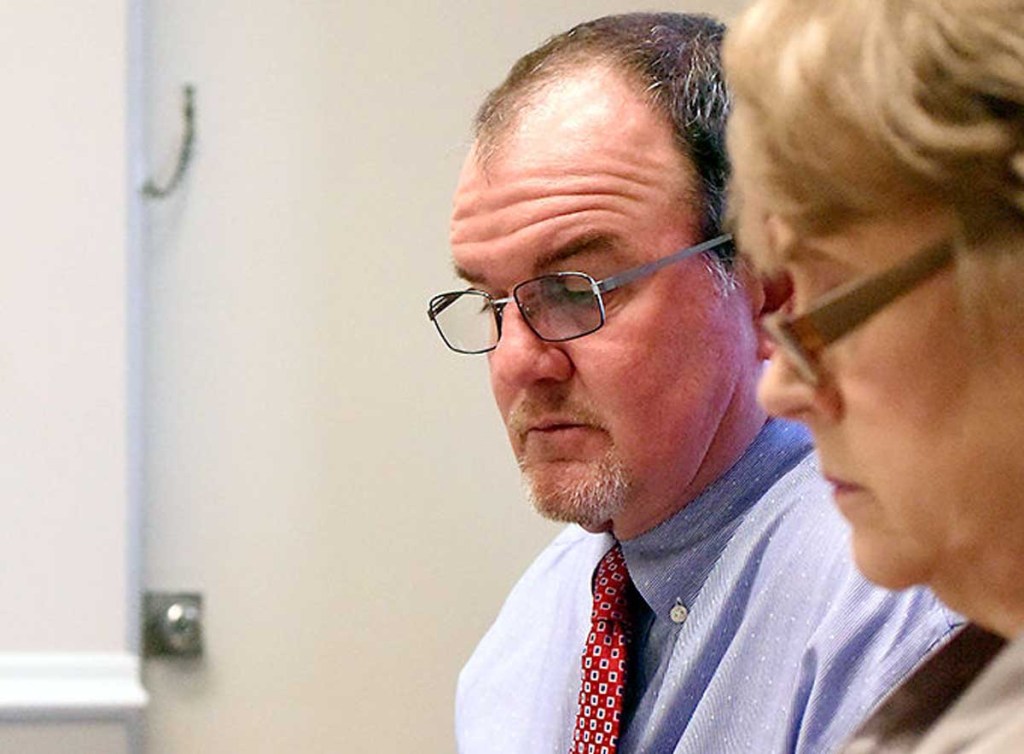Five member commission bill still on table as session nears end
Published 5:00 am Tuesday, April 28, 2020

- Cullman County Commission Chairman Kenneth Walker at an April 9 commission work session.
If all goes according to plan, the Alabama Legislature will reconvene early next month with enough time left to take up a local bill that, if passed, would convert the current three-member makeup of the Cullman County Commission into a five-member body.
In one form or another, it’s an idea that’s surfaced more than once over the decades. But the current local legislative delegation actually has a bill written and ready to introduce — though House Rep. Randall Shedd (R-Fairview) said Monday that, with the coronavirus pandemic setting a strict clock on the legislative calendar, nothing’s guaranteed.
Trending
“Local bills have to be advertised first, which we did over this past weekend,” said Shedd. “The bill itself hasn’t been filed yet. We have until May 18, constitutionally, to remain in session, so that’s the timeline for it to pass in this session. There’s a chance we won’t have time; we could adjourn before we get this bill through. If that happens, we will come back with it in either a special session later this year, or wait until next year.”
Under the new bill, the commission — currently comprised of two full-time associate commissioners and one full-time commission chair — would transition into a five-member body, with the chair remaining as the only full-time elected representative. The other four commissioners would be elected to represent, by population, the county’s four “corners,” although each would be elected by all eligible voters countywide.
Although they’d be part-time officials with their pay set at $25,000 per year under the new bill, the associate commissioners and their families would still be eligible for health coverage under the county’s insurance. That’s one reason why current commission chair Kenneth Walker says he’s remained opposed to the switch.
“I’ve been against it from the beginning, because I don’t believe that we need or that we can afford four commissioners,” said Walker on Monday. “There is a lot of potential cost. You’d have four commissioners who all want their offices in their districts, and they’d want to have a secretary to answer the phone.
“So you’re adding two more commissioners, more secretaries, and a new office — plus health insurance on top of all that. They say that the part-time commissioners wouldn’t have county vehicles, but there’d also be mileage to pay out — and I don’t know what the rate would be for that. And too, I think this is the kind of thing that should be put before the people in a referendum, where this is a bill that the legislature can pass into law on its own.”
Jeff Clemons, Walker’s opponent in the upcoming runoff race for the commission chair seat, could not be reached by phone Monday for comment. He previously told The Times he understands why the bill has gotten support from local residents who’ve turned out at town hall meetings to discuss the change with legislators, but that he’d reserve his opinion on the matter until after he had read the bill.
Trending
Shedd says the bill is the product of a lot of cooperation and effort among the legislative delegation, and that there’s consensus support to introduce it.
“This has been a joint effort on everybody’s part,” he said. “We’ve really worked hard to try to get it right, and I think we have. The idea has been discussed at community meetings for a long time, and the legislative delegation has spent a lot of time on the details to try to have a county government structure that provides citizen representation for all, and a structure that can respond to economic and the infrastructure development needs of the future.
“There’s been a lot of work that’s gone into it to address concerns that most folks we’ve heard from have. You can’t please everybody, but we’ve certainly tried.”
If passed, the bill also would require the commission to conduct at least one of its monthly meetings in the evening, so that “the working public,” according to Shedd, would have regular opportunities to attend.
The delegation attests that the change would not create new structural costs to taxpayers, once the new setup is up and running, and that the changes would roll out in staggered fashion, retaining the two currently-elected associate commissioners in their positions — at their current pay — while filling the two new vacancies at the $25,000 annual salary beginning in November of 2022.





